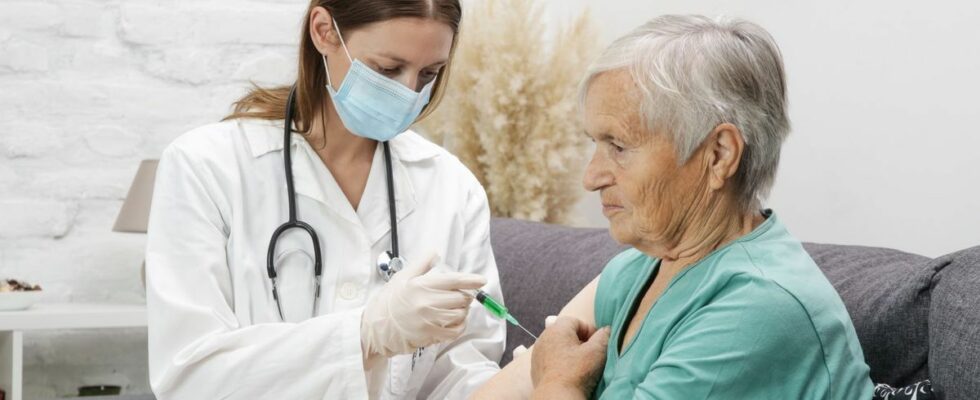Published on
Updated
Reading 2 min.
Referred to by the Ministry of Labor, Health and Solidarity, the High Authority of Health issued new recommendations on July 4, 2024, concerning respiratory syncytial virus infections. It recommends that those over 75 years of age – and those aged 65 and over with chronic respiratory or cardiac pathologies – be vaccinated against RSV, with one of the two available serums.
Respiratory syncytial virus (RSV) is known to cause bronchiolitis in toddlers every winter. What is less well known is that it can also cause serious health problems in older adults as well: “acute respiratory distress syndrome, serious complications such as exacerbation of underlying cardiopulmonary disease or pneumonia requiring respiratory support, which may lead to death” lists the HAS.
Vaccination now recommended for the elderly
Last year, during the winter of 2022-2023, those over 75 accounted for 61% of hospitalizations and 78% of deaths linked to the respiratory syncytial virus, a highly contagious virus, the health authority recalls.
Seniors are therefore particularly vulnerable to this virus, which is why the High Authority for Health (HAS) recommends, as a prevention strategy for the elderly, to be vaccinated with one of the two serums available on the market: Arexvy, manufactured by the GSK laboratory or Abrysvo developed by Pfizer.
This recommendation concerns all people aged over 75 and those aged over 65 with comorbidities, such as respiratory or cardiac pathology, for example.
Seniors, the first victims of VRS
If the HAS took this decision, it is because no treatment exists for RSV respiratory infections and the elderly are its first victims.
In making its decision, the health authority took into account the data on the efficacy of the two vaccines on lower respiratory tract infections in those aged 60 and over, which included: “showed a reduction in these infections of 83% for Arexvy and 67 to 86% for Abrysvo depending on the criterion retained (two or three symptoms)”.
It also relied on the available safety and tolerance data. In a second phase, the HAS will reassess its recommendation once certain data have been consolidated, concerning the real-life efficacy of these vaccines on hospitalizations and deaths attributable to RSV infections, the expected benefit in other populations, particularly in immunocompromised patients, and pharmacovigilance.
It should therefore be possible to be vaccinated from the start of the next school year, with this procedure being covered by health insurance. The HAS also specifies that “RSV vaccination can be given concomitantly with vaccination against flu“.
